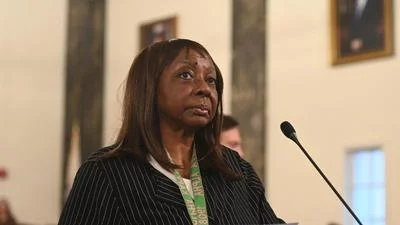Brandon Johnson Mayor | Chicago Contrarian
Brandon Johnson Mayor | Chicago Contrarian
Chicago Mayor Brandon Johnson’s recent proposal to reinstate a corporate “head tax” has drawn strong criticism from national media and sparked debate among local officials. The Wall Street Journal editorial board published an article on November 1, directly challenging the mayor’s plan and questioning its impact on Chicago’s business environment.
The proposed measure would impose a surcharge of approximately $21 per month for each employee at large companies operating in the city. This move is intended to help address a projected budget deficit nearing $1.15 billion for 2026. Critics argue that such a tax could deter businesses from expanding or relocating to Chicago, citing concerns about increased costs and unpredictability in the city’s fiscal policies.
The Wall Street Journal editorial stated: “Chicago’s Head Case Wants a Head Tax.” The publication continued with pointed commentary on both the policy and the broader challenges facing City Hall: “The mayor pitching a job-killing surcharge while City Hall can’t marshal a coherent fiscal plan or command the trust of the aldermanic majority... That lack of alignment is more than a municipal tantrum; it’s a cancer for economic development.”
There is also significant resistance within Chicago’s City Council, with many members indicating they will not support reinstating the head tax. If rejected, observers note that simply proposing such measures may already have consequences for local businesses and the city’s reputation among investors.
In addition to the head tax, last month’s budget outline included other revenue proposals such as new social-media fees, expanded amusement taxes, and drawing from TIF reserves. These approaches have raised further questions about their legality and effectiveness in addressing structural financial issues.
The Wall Street Journal has previously criticized Mayor Johnson, labeling him “America’s worst mayor” following earlier fiscal decisions. National attention like this can influence perceptions among business leaders considering investments or relocations.
Some residents are calling for greater civic engagement in response to these developments. Suggestions include organizing opposition coalitions, supporting candidates focused on economic growth and public safety, and participating actively in upcoming elections.
As discussions continue over how best to manage Chicago’s finances and attract investment, many stakeholders await City Council's decision on whether to advance or halt the proposed head tax.






 Alerts Sign-up
Alerts Sign-up